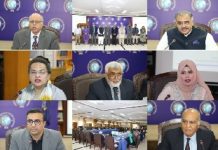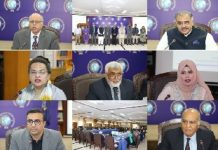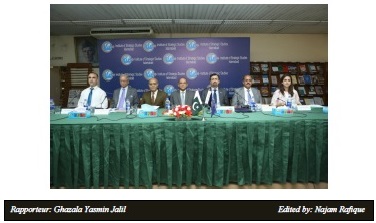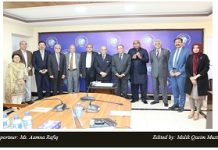Institute of Strategic Studies, Islamabad (ISSI) organized launch of the book on September 18, 2019 titled “Nuclear Deterrence in South Asia: New Technologies and Challenges to Sustainable Peace” authored by Dr. Rizwana Abbasi and Dr. Zafar Khan. Dr. Rizwana is an Associate Professor at the Department of International Relations, NUML, Islamabad and Dr. Zafar Khan is Assistant Professor at the Department of Strategic Studies, NDU Islamabad. Eminent commentators on the book included: Ambassador Ali Sarwar Naqvi, Executive Director, Center for International Strategic Studies (CISS); Mr. Khalid Banuri, former Director General, Arms Control and Disarmament Affairs (ACDA), SPD; and Dr. Zafar Nawaz Jaspal, Professor, School of Politics and International Relations (SPIR), Quaid-i-Azam University.
In his welcome remarks, Ambassador Aizaz Ahmed Chaudhry, Director General ISSI said that the book addresses the issue of nuclear deterrence in South Asia, a subject of vital importance to Pakistan. The authors, he said, have argued that South Asia is embroiled in a systemic security dilemma. The book rests on the main pillars of neorealist argument – anarchy, fear and uncertainty. The core argument of the book is that the evolving technologies and competing strategies in South Asia make peace fragile and war more likely. He noted that the authors contend that the strategic pattern of security dilemma is emanating from a broader systemic security dilemma between US and China in Asia, where US sees China as a threat and is building up a strategic partnership with India in order to counter-balance China’s influence, while Pakistan is moving closer to China to counter-balance India. These alignments increase uncertainty, and mistrust between India and Pakistan, moving the two nuclear armed states into yet more crises and military conflicts.
















